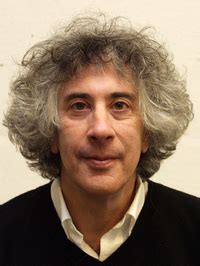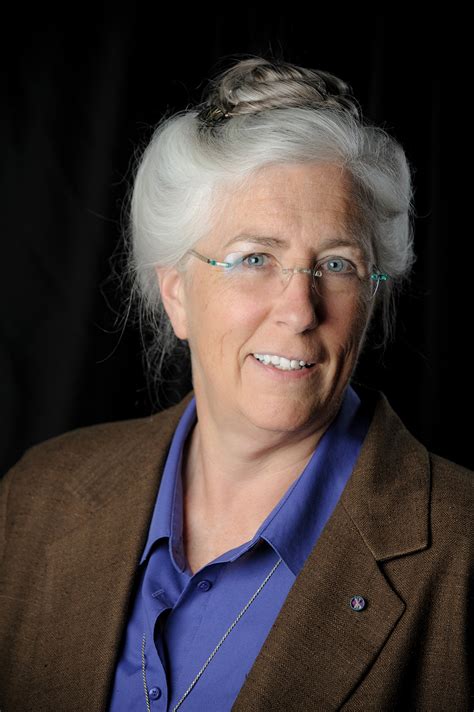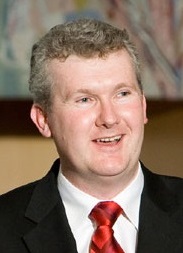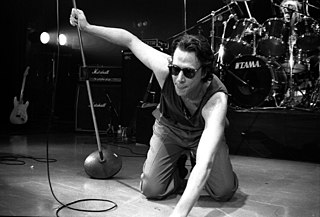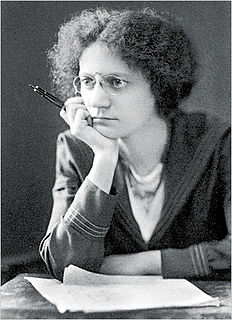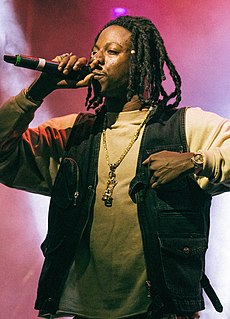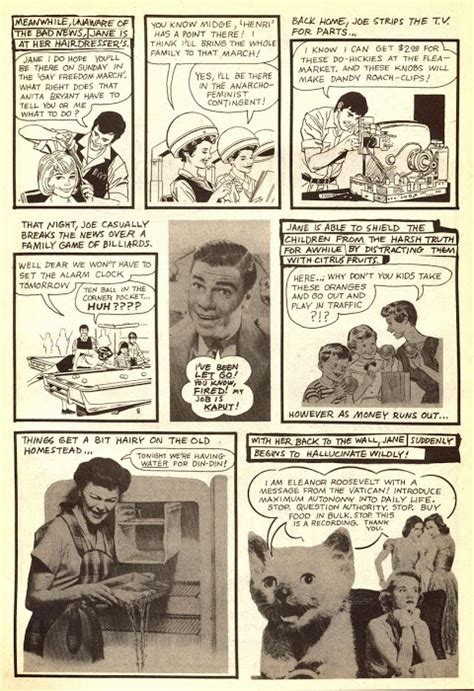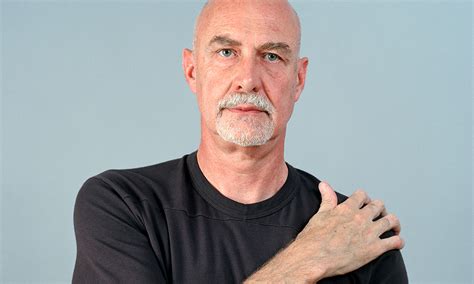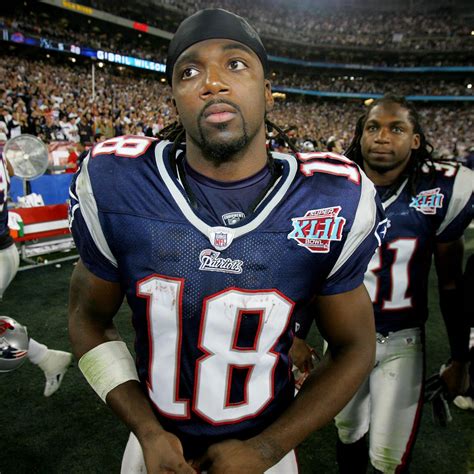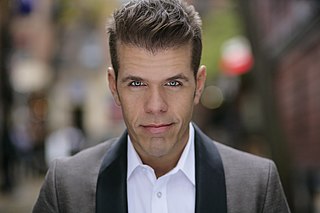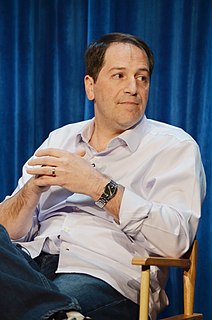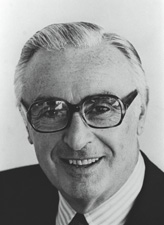Top 683 Malcolm X Autobiography Quotes & Sayings - Page 11
Explore popular Malcolm X Autobiography quotes.
Last updated on November 15, 2024.
My life has been sadly lacking in snails. I can't clearly remember any first-hand encounters. The best thing I can come up with is second-hand, a passage in Jacques Pépin's autobiography (The Apprentice: My Life in the Kitchen) in which he describes prying snails from the terrace of his vacation home and cooking them up for dinner.
Christians got a lot of work to do. But, the spirit of Dorothy Day is alive. Martin Luther King is still alive. Malcolm X and the prophetic Islamic tradition is still alive. We can't lose sight of those prophetic religious folk who, even given their kin in the same tradition, says, you all are wrong on this, but we're still in the same tradition.
I’m not the smartest guy in the world, but I’m certainly not the dumbest. I mean, I’ve read books like "The Unbearable Lightness of Being" and "Love in the Time of Cholera", and I think I’ve understood them. They’re about girls, right? Just kidding. But I have to say my all-time favorite book is Johnny Cash’s autobiography "Cash" by Johnny Cash.
I would say to the people of Queensland, and to all listeners around the country, is that if you want stable government in the next term of parliament, it's not just enough to reelect the [Malcolm] Turnbull government. It's also important to elect a senate which will be able to deal with the important reforms, with the important legislation, in a way in which the senate in the last parliament was unable to deal with.
Somebody talked me into writing an autobiography about six or seven years ago. And I said I'd try. We talked into a tape recorder, and after a couple of months, I said, To hell with it. I was so depressed. It was like saying, 'This is the end.' I was more interested in what the hell was coming the next day or the next week.
Many of our students want to do what they have done and that has made them successful thus far in their lives: play by the rules, and do what is expected. But as much social science research and writing by Malcolm Gladwell, among others, make clear, the rules are mostly created by those already in power so obtaining power often entails standing out and breaking rules and social conventions.
Malcolm X broke with the N.O.I. in March 1964, and in that last 11 chaotic months, he spent most of the time outside of the United States. Nevertheless, he built two organizations in the spring of 1964. First, Muslim Mosque Incorporated, which was a religious organization that was largely based on members of the N.O.I. who left with him. It was spearheaded by James 67X or James Shabazz, who was his chief of staff. Then secondly was the Organization of Afro-American Unity.
Human beings can be redeemed. Empires cannot. Our refusal to face the truth about empire, our refusal to defy the multitudinous crimes and atrocities of empire, has brought about the nightmare Malcolm predicted. And as the Digital Age and our post-literate society implant a terrifying historical amnesia, these crimes are erased as swiftly as they are committed.
Chronicle Books is a wonderful book company. I love how everything represents who I am. The Diva Rules! is not an autobiography in the sense that I am talking about my life but more about my journey as to where I am now. People told me I would never make it. I was staring in the face of adversity and did it anyway. I chronicle it through the years. It is about finding your strength.
I you're writing memoir, but it even comes up in fiction. People just assume that you're writing thinly veiled autobiography. And particularly, I think, for people of color, our work is always seen as kind of anthropological artifact regardless. So, there's always going to be that assumption, but even more so in a memoir because often the names aren't even changed. It is easier to verify.
Look, I really do not care about you. What I care about is the worlds that you bear witness to. You are nothing more than a dog with a video camera strapped on its back. As you walk the streets looking for a place to mate or piss or eat, the camera is on and we will see the world because of you... You carry the camera and we enjoy the world. (On images as autobiography)
I loved working with Malcolm [McDowell]. He's been such an important person in my life. I mean, not just as someone I was married to, which is huge, and the father of my children, which is even bigger, but also as a friend and an inspiration and somebody who probably helped to fuel something that all my reading as a child had already started, which was a love of England and the world of the theater over there, which I became involved with through him and probably because of him.
(Pete) Rose's coming clean is the most soiled conversion of convenience since ... well, Aug. 17, 1998, when DNA evidence caused Bill Clinton to undergo a memory clarification. On the diamond, no one ever wrung more success from less natural talent than Rose did. But his second autobiography - which refutes the first - makes worse the mess he has made.
Tell me about yourself, Miss Russel." I started to give him the obligatory response, first the demurral and then the reluctant flat autobiography, but some slight air of polite inattention in his manner stopped me. Instead, I found myself grinning at him. "Why don't you tell me about myself, Mr. Holmes?
Confronting the intolerable should be challenging and upsetting. Who could read the testimonies of Primo Levi and not feel intellectually and emotionally exhausted? Or Martin Luther King Jr.'s words, not to mention those of Malcolm X? It is the conditions that produce violence that should upset us ethically and prompt us to act responsibly, rather than to capitulate to a privatized emotional response that substitutes a therapeutic language for a political and worldly one.
This gave me occasion to observe, that when Men are employ'd they are best contented. For on the Days they work'd they were good-natur'd and chearful; and with the consciousness of having done a good Days work they spent the Evenings jollily; but on the idle Days they were mutinous and quarrelsome, finding fault with their Pork, the Bread, and in continual ill-humour. (Autobiography, 1771)
an Autobiography is the truest of all books; for while it inevitably consists mainly of extinctions of the truth, shirkings of the truth, partial revealments of the truth, with hardly an instance of plain straight truth, the remorseless truth is there, between the lines, where the author-cat is raking dust upon it which hides from the disinterested spectator neither it nor its smell... the result being that the reader knows the author in spite of his wily diligences.
I was working within a figurative representational framework, and there was a sense of reading the painting as a transparency, or truth, or autobiography, which I think is partially the burden of artists of color - or women, or anybody who is representing a so-called minority position. Are you actually telling a true story, or your own story? You don't just get to tell a story. The readings of the work didn't necessarily conform to my own understanding of mythology, where violence and eroticism and the body and all of these different forms coexist all the time.
I'm a Democrat voting for Bush, even though on economic issues, from taxes to government regulation, I'm not happy with the Republican positions. But we're at war, and electing a president who is committed to losing it seems to be the most foolish thing we could do. Personal honesty is also important to me, and Kerry is obviously not in the running on that point, given that he can't keep track of the facts in his own autobiography.
The claim that the Government made that there were 21 measures in it is wrong. We said we wanted to wait till we saw the bill because we didn't to trust that it would be as they described and it's turned out we were exactly right for saying that. The Government has been entirely deceptive with this. And if their first action is to lie to the Australian people about what was meant to be their centrepiece bill, that really tells you want the [Malcolm] Turnbull Government's going to be about.
The social scientist is in a difficult, if not impossible position. On the one hand there is the temptation to see all of society as one's autobiography writ large, surely not the path to general truth. On the other hand, there is the attempt to be general and objective by pretending that one knows nothing about the experience of being human, forcing the investigator to pretend that people usually know and tell the truth about important issues, when we all know from our own lives how impossible that is.
I think that in his 39 short years of life, Malcolm X came to symbolize Black urban America, its culture, its politics, its militancy, its outrage against structural racism and at the end of his life, a broad internationalist vision of emancipatory power far better than any other single individual that he shared with DuBois and Paul Robeson, a pan-Africanist internationalist perspective.
My films have always had an element of immediate autobiography, in that I shoot any particular scene according to the mood I'm in that day, according to the little daily experiences I've had and am having - but I don't tell what has happened to me. I would like to do something more strictly autobiographical, but perhaps I never will, because it isn't interesting enough.
Malcolm Bradbury made the point, and I don't know whether it's a valid one or not, that the real English at the moment is not the English spoken in England or in America or even in Canada or Australia or New Zealand. The real English is the English which is a second language, so that it's rather like Latin in the days of the Roman Empire when people had their own languages, but had Latin in order to communicate.
The problem with an autobiography is that all these extra factors make it difficult. You don't want to hurt people's feelings. You don't know how much you can trust your memory. You don't want it to be self-serving. And you have all these issues about how to present yourself. All these factors make it harder to do than a novel.
As for those who think the Arab world promises freedom, the briefest study of its routine traditional treatment of blacks (slavery) and women (purdah) will provide relief from all illusion. If Malcolm X had been a black woman his last message to the world would have been entirely different. The brotherhood of Moslem men-all colors-may exist there, but part of the glue that holds them together is the thorough suppression of women.
Whites have always put one against another and now they have a dead man who was nothin' but a, he admitted it himself, Malcolm X, was a tramp or had white women sellin' their body for him, he was nothin' until the Honorable Elijah Mohammed made him great, made him great, taught him, even his name X come from Elijah.
After years spent trying to deal with the effects of COINTELPRO, my rage at the FBI's almost unimaginable evil remains undiminished because I believe that it succeeded in many of its horrifying goals, given the deaths of Martin King, Malcolm X, and other sixties leaders. Since the FBI uses taxpayer dollars to fund its extreme and ridiculous investigations of anyone who expresses dissenting opinions, even resorting to crime - including theft, encouragement to murder, subornation of perjury, and manipulation of the judicial process - to achieve its ends, I have always advocated its disbanding.
Autobiographical writings, essays, interviews, various other things... All the non-fiction prose I wanted to keep, that was the idea behind this collected volume, which came out about few years ago. I didn't think of Winter Journal, for example, as an autobiography, or a memoir. What it is is a literary work, composed of autobiographical fragments, but trying to attain, I hope, the effect of music.
A proper autobiography is a death-bed confession. A true man finds so much work to do that he has no time to contemplate his yesterdays; for to-day and to-morrow are here, with their impatient tasks. The world is so busy, too, that it cannot afford to study any man's unfinished work; for the end may prove it a failure, and the world needs masterpieces.
Autobiography, if there really is such a thing, is like asking a rabbit to tell us what he looks like hopping through the grasses of the field. How would he know? If we want to hear about the field on the other hand, no one is in a better circumstance to tell us-so long as we keep in mind that we are missing all those things the rabbit was in no position to observe.
The autobiographer looks at life through the lens of his or her own life and really uses herself or himself as the jumping-off place to examine the social mores and the economic and political climates. In a way, the autobiography becomes history as well as the story of one person, for it becomes the story of a family or the story of the state or nation.
Prep school, public school, university: these now tedious influences standardize English autobiography, giving the educated Englishman the sad if fascinating appearance of a stuffed bird of sly and beady eye in some old seaside museum. The fixation on school has become a class trait. It manifests itself as a mixture of incurious piety and parlour game.
If I could say something about Capricornia, and it came out in your previous report, there is no doubt that the end of the mining boom has led to an economic downturn in central Queensland, and that is why people in Capricornia, and elsewhere in central Queensland too, are so desperate for a government that will protect their jobs and create new opportunities for jobs in the future. And that is why [Malcolm] Turnbull government's message of jobs and growth and its six point economic plan is so important to them.
Despite the natural belittling of one's self, the doubts, the insecurities, we have to wake up to the realisation that we all write our own autobiography, we are the authors of our life story. Realising that, write a good story with your life and make sure to write yourself as the protagonist. Be the hero of your journey.
I was watching lectures by Malcolm X, Martin Luther King, Dr. Sebi and Umar Johnson. It's super mind opening when you listen to those words and think about how much they still resonate today. Think about how true those words are, and how much they predicted the future. That was what was really mind-boggling to me.
Memoir is trustworthy and its truth assured when it seeks the relation of self to time, the piecing of the shards of personal experience into the starscape of history's night. The materials of memoir are humble, fugitive, a cottage knitting industry seeking narrative truth across the crevasse of time as autobiography folds itself into the vast, fluid essay that is history. A single voice singing its aria in a corner of the crowded world.
Breaking new factual ground is not what Zeitgeist is about, however. Rather, the video is a powerful and fast-acting dose of agitprop, hawking its conclusions as givens. Unfortunately, like most propaganda, it doesn’t play fair with its intended audience. At times, while watching it, I felt like I was getting Malcolm McDowell’s treatment in Clockwork Orange: eyes pried wide open while getting bombarded with quick-cut atrocity photos.
[Cindy Sherman's] photographs reverse the terms of art and autobiography. They use art not to reveal the artist's true self but to show the self as an imaginary construct. There is no real Cindy Sherman in these photographs; there are only the guises she assumes. And she does not create these guises; she simply chooses them in the way that any of us do.
Malcolm Gladwell was on TV talking about wanting to have college football banned. It's interesting just because of him even bringing the topic up. Sooner or later, whether people are for or against it whether they like it or not, that is going to be a discussion that is going to come up. That's how it all starts - someone brings up the inquiry: Should we continue to let our children play Pop Warner, high school, and college football? Ten, 15, 20 years from now, who knows where that conversation is going to be.
If a human being dreams a great dream, dares to love somebody; if a human being dares to be Martin King, or Mahatma Gandhi, or Mother Theresa, or Malcolm X; if a human being dares to be bigger than the condition into which she or he was born-it means so can you. And so you can try to stretch, stretch, stretch yourself so you can internalize, 'Homo sum, humani nil a me alienum puto. I am a human being, nothing human can be alien to me.' That's one thing I'm learning.
Malcolm X had a clear vision and an understanding that we were - that he was a part of a broad freedom struggle. As his vision became more internationalist and pan-African, as he began, especially in 1964, after seeing the example of anti-colonial revolutions abroad and began to articulate and incorporate a socialist analysis economically into his program, he clearly became a threat to the US state.
I was roommates with 2 of the guys who were influential in forming the Black Arts philosophy. I called them "goons," and [Amiri] Baraka took offense at that. But if you read his autobiography, the night we went up there for a fundraiser, he talks about how he wished that some violence would happen to us. How do you like Baraka as a gracious host?
Luckily, I remembered something Malcolm Cowley had taught us at Stanford - perhaps the most important lesson a writing class (not a writer, understand, but a class) can ever learn. 'Be gentle with one another's efforts,' he often admonished us. 'Be kind and considerate with your criticism. Always remember that it's just as hard to write a bad book as it is to write a good book.'
I'd never put much thought into writing an autobiography before, because while I have this public persona of being extremely confident, I also am extremely filled with self-doubt, worry and insecurity. This book came about because I was trying to sell another book, unsuccessfully, about health and wellness.
Cultures, when they meet, influence one another, whether people like it or not. But Americans don't have any way of describing this secret that has been going on for more than two hundred years. The intermarriage of the Indian and the African in America, for example, has been constant and thorough. Colin Powell tells us in his autobiography that he is Scotch, Irish, African, Indian, and British, but all we hear is that he is African.
I have a song I wrote called “Autobiography.” I came from a very intense living situation, with having a parent on drugs and not having a lot of money. So I always want to talk about the real things. But I think 90 percent of my music, I want it to be 'feel-good music'. I'm already recording tracks for my album, but when it comes time to actually say, 'this is the album,' I may be in a completely different space than I'm in right now.
I have written 5 books that address major figures in our culture: books on Malcolm X, Martin Luther King Jr., Tupac Shakur, Marvin Gaye and Bill Cosby. But even in the books that take up major figures, I hope to provoke conversation, insight and understanding about these personalities by providing new, fresh and vital information and analysis about them.
Here is a quilted book about mathematical practice, each patch wonderfully prepared. Part invitation to number theory, part autobiography, part sociology of mathematical training, Mathematics without Apologies brings us into contemporary mathematics as a living, active inquiry by real people. Anyone wanting a varied, cultured, and penetrating view of today's mathematics could find no better place to engage.
Did you ever stop to thnk about all the people we kill? They're always people who tell us to live together in harmony and try to love one another: Jesus, Ghandi, Lincoln, John Kennedy, Bobby Kennedy, Medgar Evers, Malcolm X, Martin Luther King, John Lennon. They all said: 'Try to live together peacefully.' BAM! Right in the f--in head! Aparently we're not ready for that!
Johnny Ramone's autobiography is a no holds barred, straight-forward book written in a no-nonsense style that is Johnny personified. His story is written in his own actual words, so the reader gets an insight into what made him the unique, charismatic and exciting individual that he was. It also gives a great view of The Ramones from Johnny's perspective.
All the arguments there are against Malcolm [Turnbull] - and there are many - the one thing in which he is impeccable and why I would support him in this is that he has an absolutely impeccable record on the question of colour and race. People often wondered why. What I see as a possible explanation is [that] he came from a very wealthy family - a 'squattocracy' - and he had private education at home and then he went to boarding school at Melbourne Grammar School, one of those lead schools in Australia.
I would love to see any one of those people again [Erik Palladino, Paul Schulze, Ian Reed Kesler, even Malcolm-Jamal Warner, Carly Pope,], and I definitely suspect we will see at least one or more of them again, but other than, obviously, Carly Pope, because we leave off anticipating seeing her again [in Suits], of the other ones, we have to figure out a way to make them come back and we haven't yet.
There's a lot of material from my life in my books, but they're not really autobiographical, in the sense that they're not about my life. So, in 'A Feather on the Breath of God' I write about my parents, I write about this Russian immigrant, I write about the world of dance, but it isn't an autobiography; so much is left out.
It must be remembered that in those great days I was considered to be an "integrationist" - this was never, quite, my own idea of myself - and Malcolm was considered to be a "racist in reverse." This formulation, in terms of power - and power is the arena in which racism is acted out - means absolutely nothing: it may even be described as a cowardly formulation. The powerless, by definition, can never be "racists," for they can never make the world pay for what they feel or fear except by the suicidal endeavor which makes them fanatics or revolutionaries, or both.
This may be a little bit of a provocative thing to say, but the memoirist doesn't owe the reader anything other than a good story and the inclining of the mind in the direction of memory. Of course, the memoirist is not allowed to make things up. But the really skilled memoirist knows what to leave in and what to leave out to serve the story. In autobiography you can't do that.
If one loves stories, then one would naturally love the story of the story. Or the story behind the story, pick your preposition. It does seem to me to be a kind of animal impulse almost, a mammalian curiosity. For a reader to wonder about the autobiography in a fiction may be completely unavoidable and in fact may speak to the success of a particular narrative, though it may also speak to its failure.










